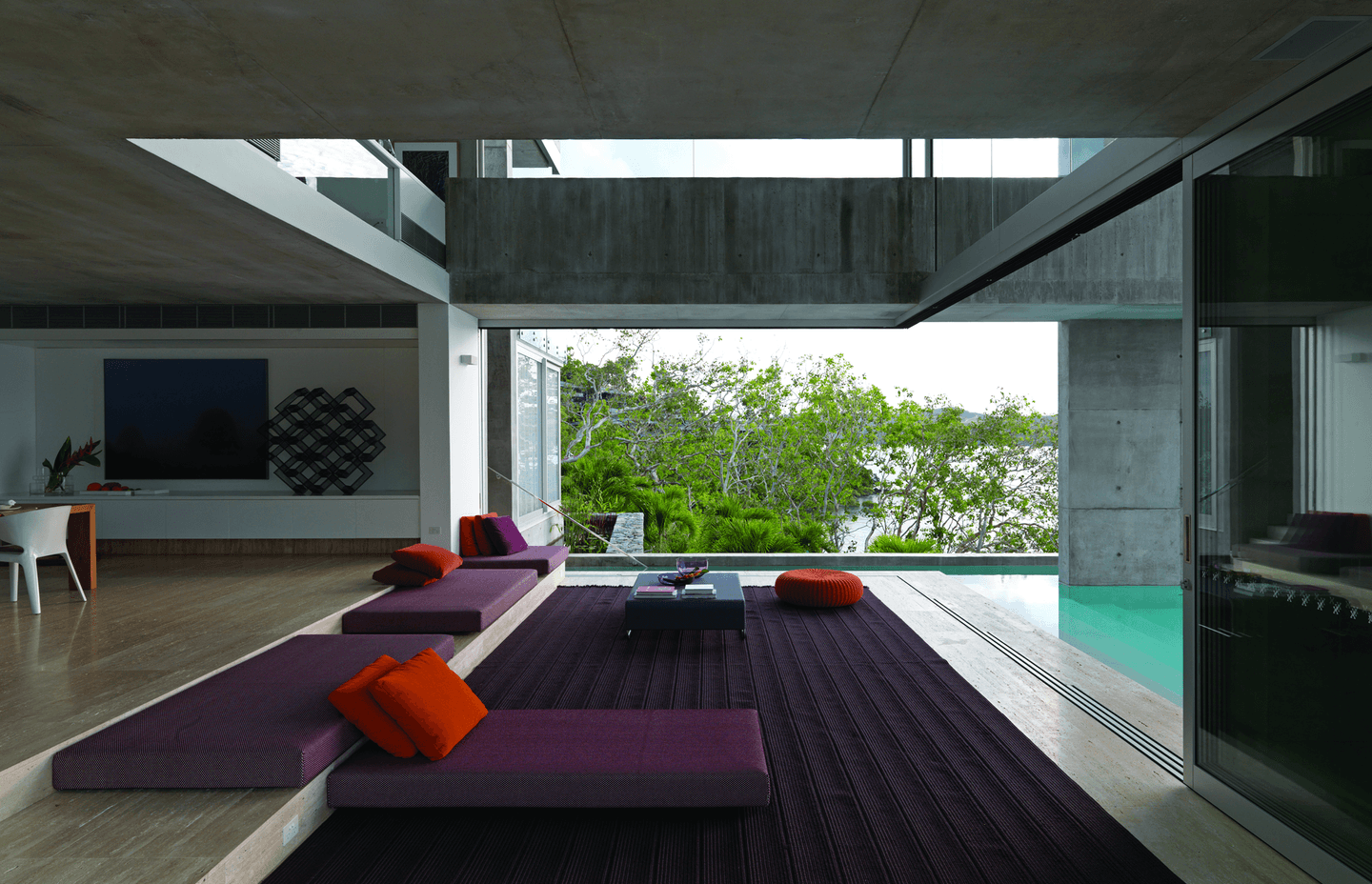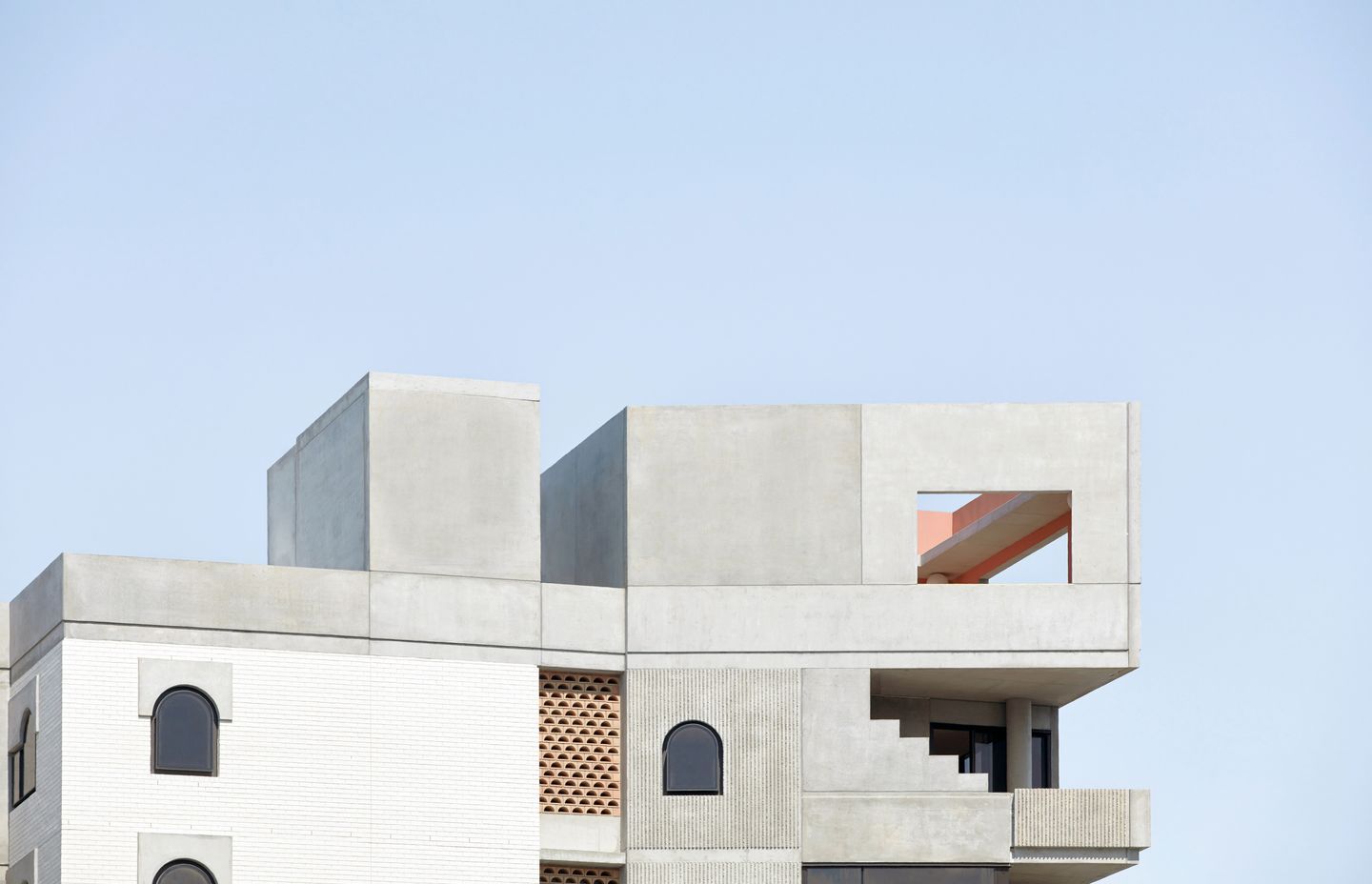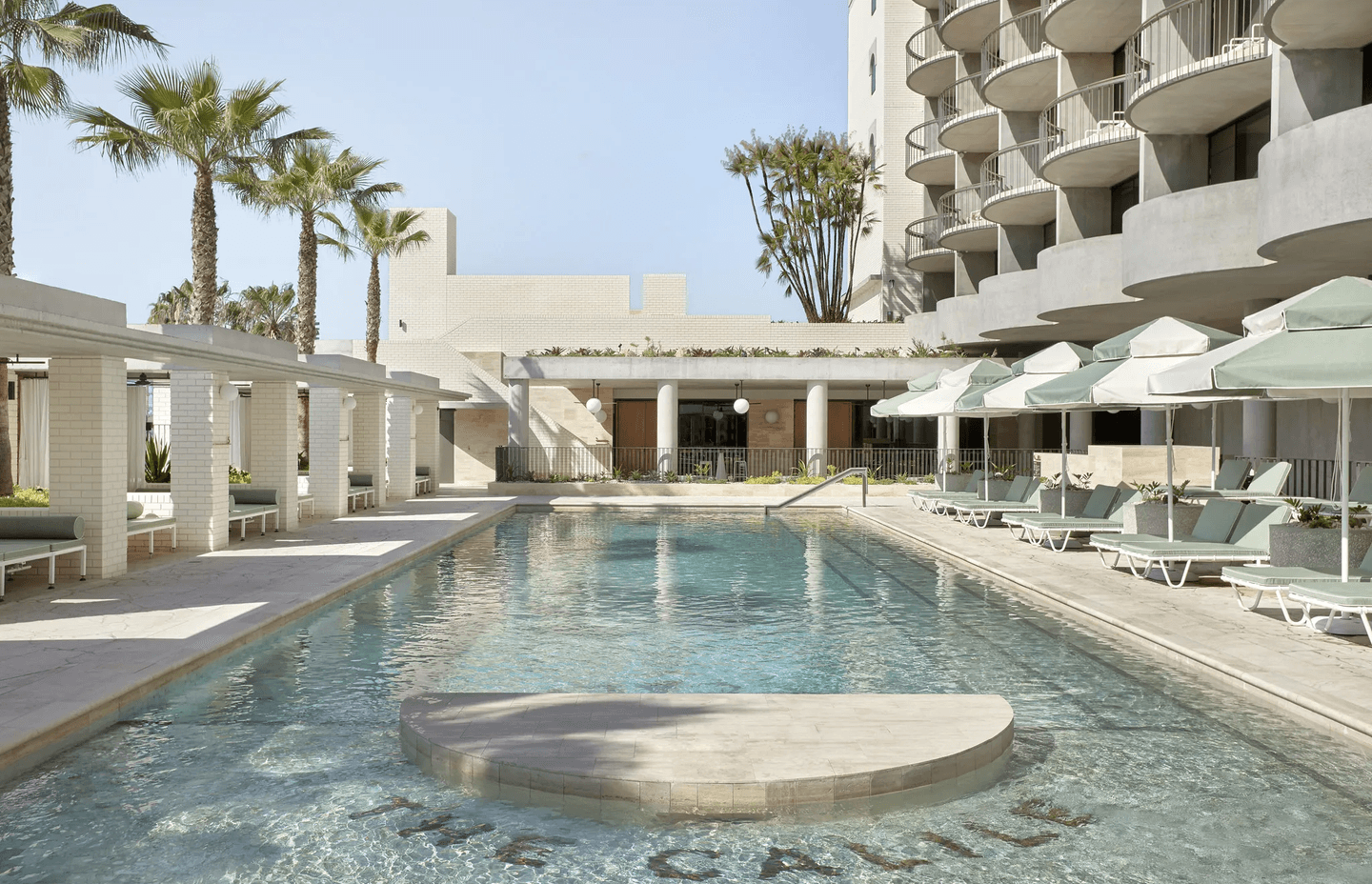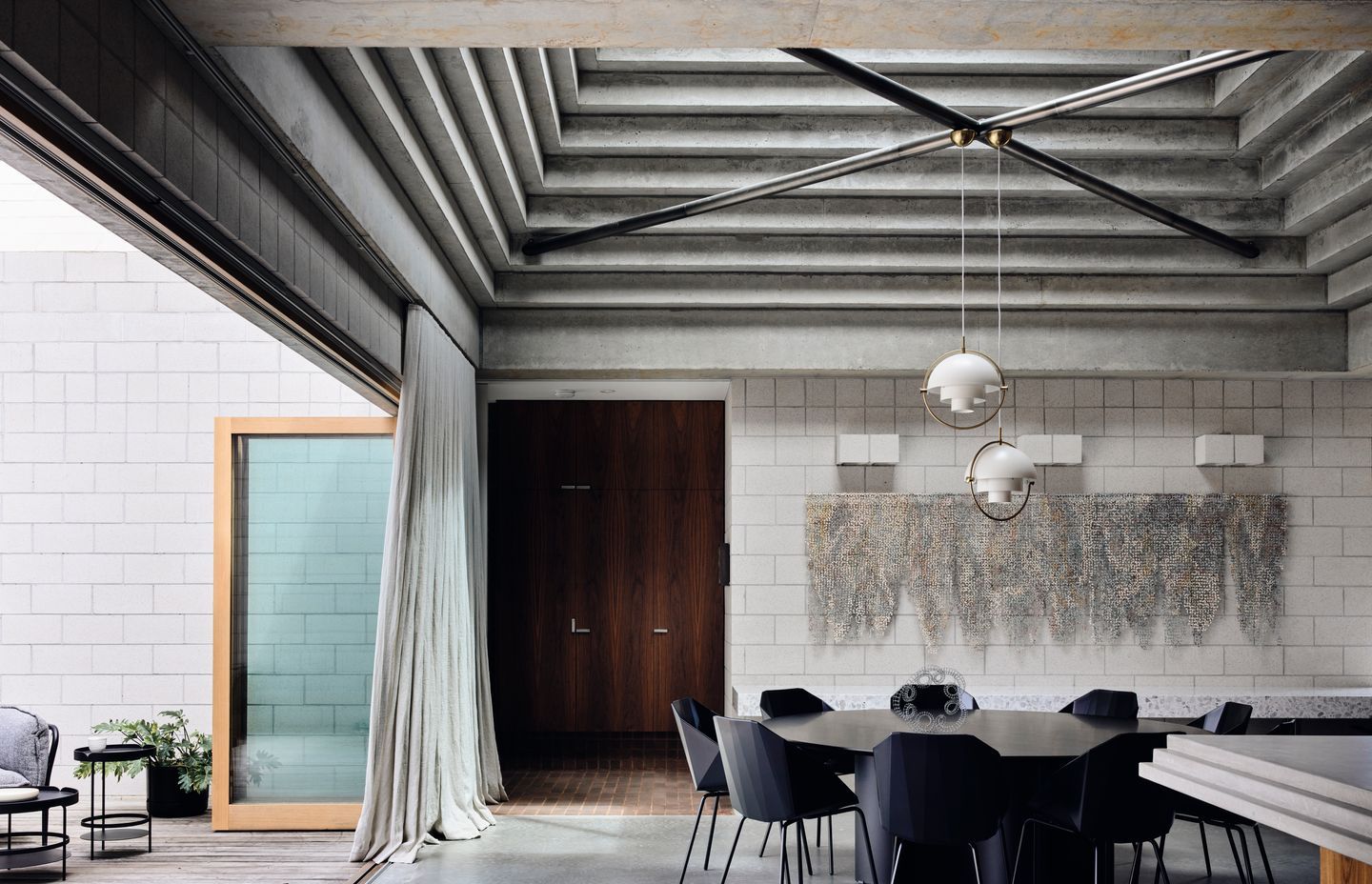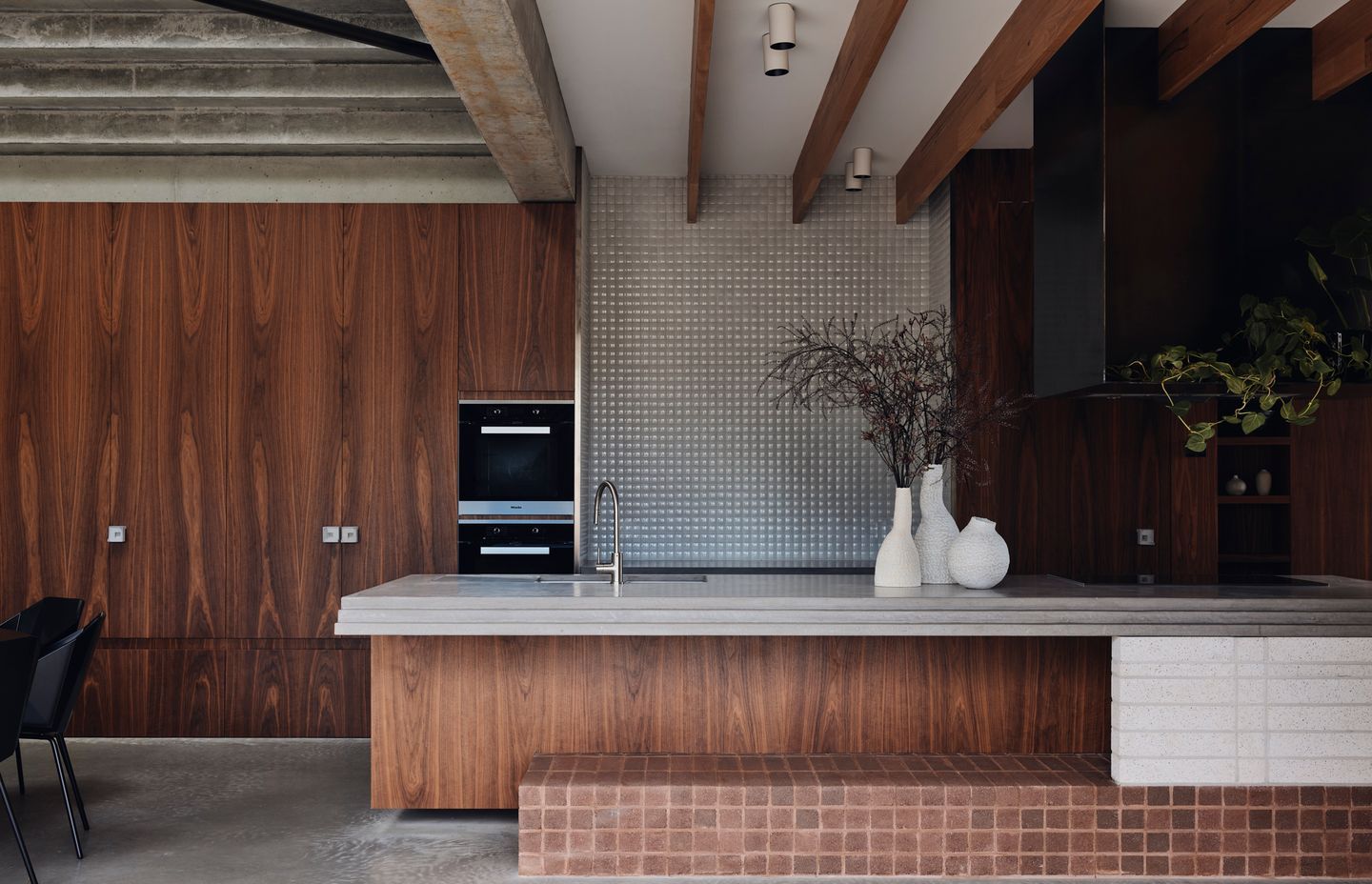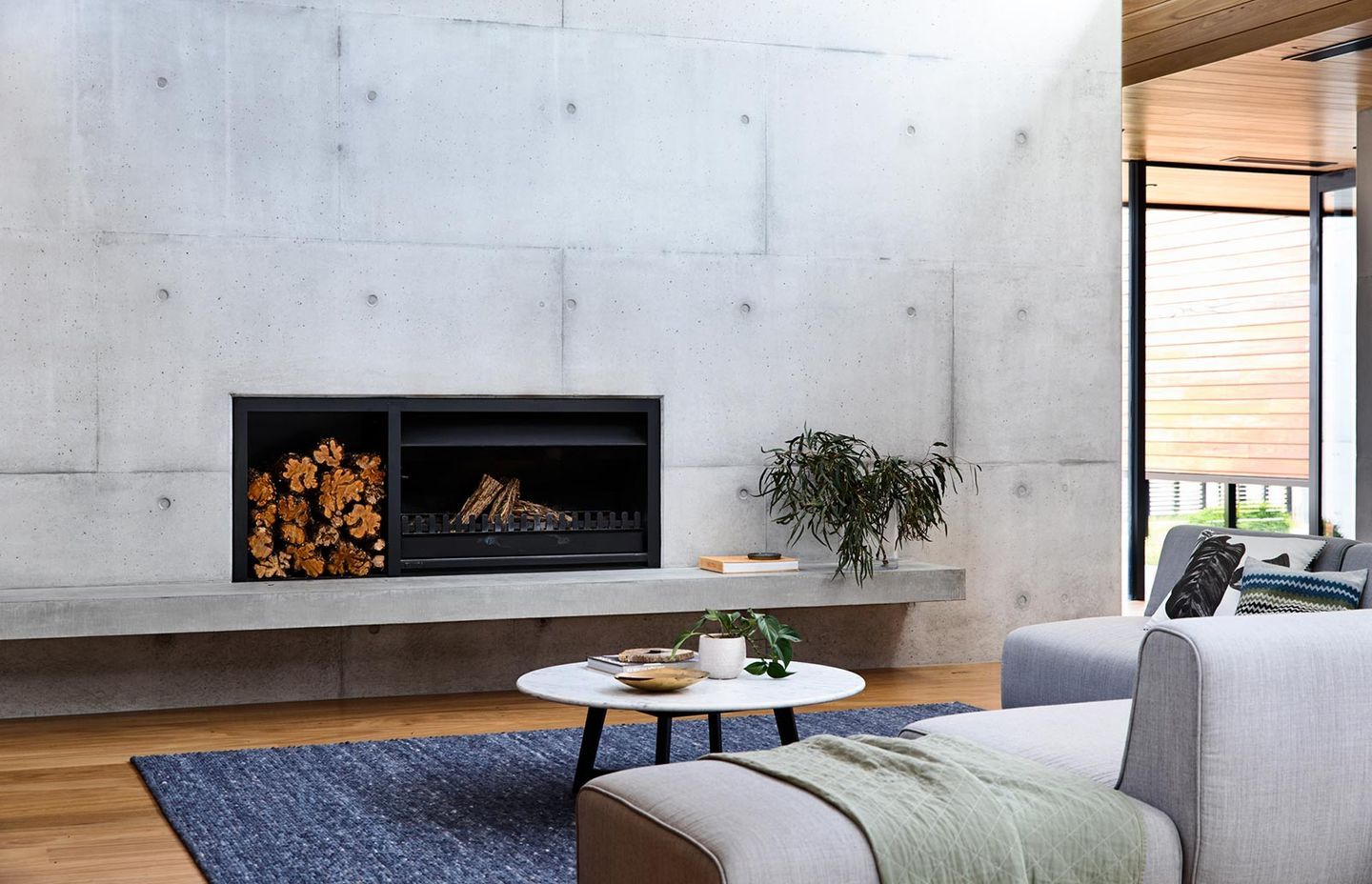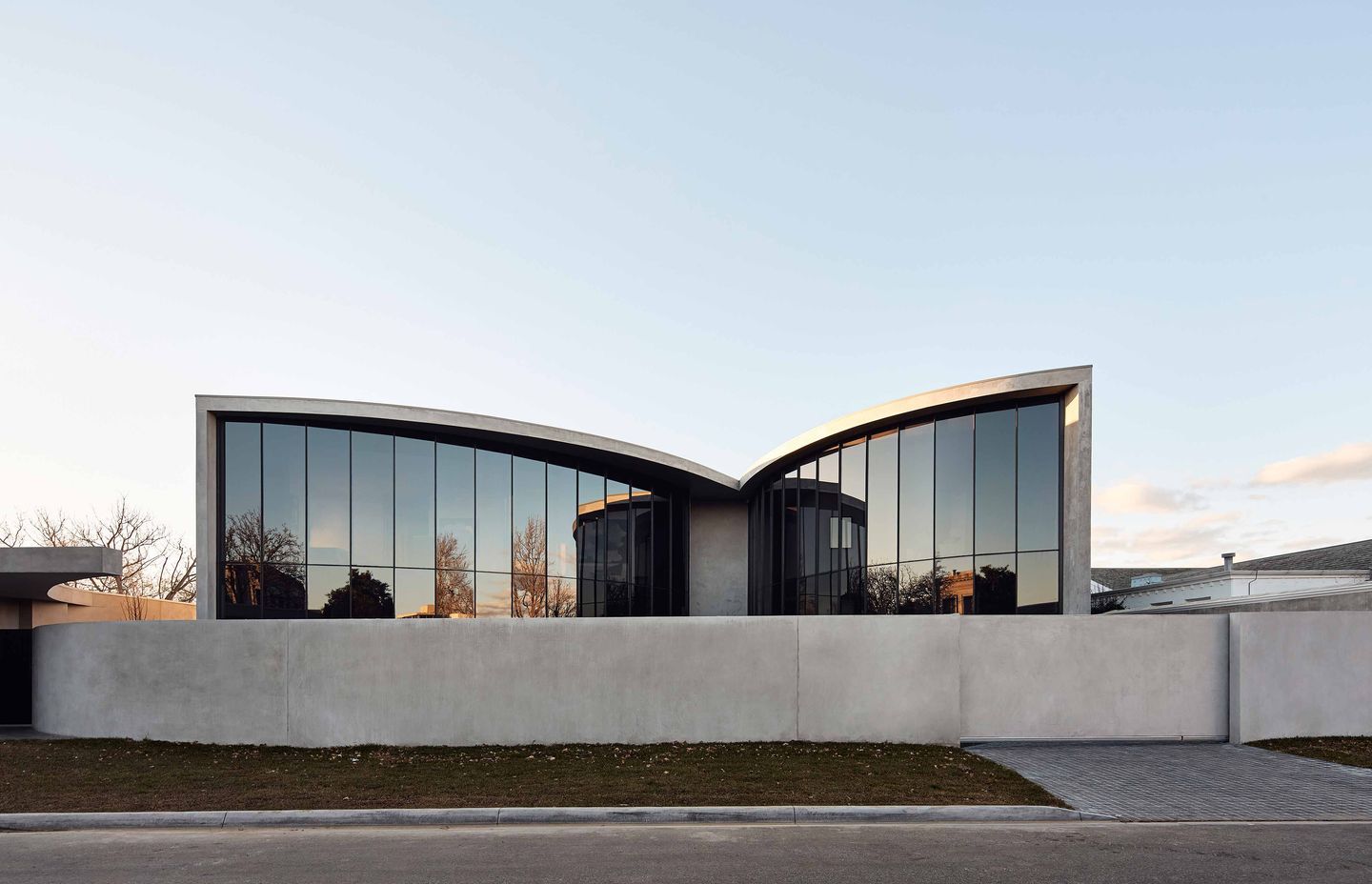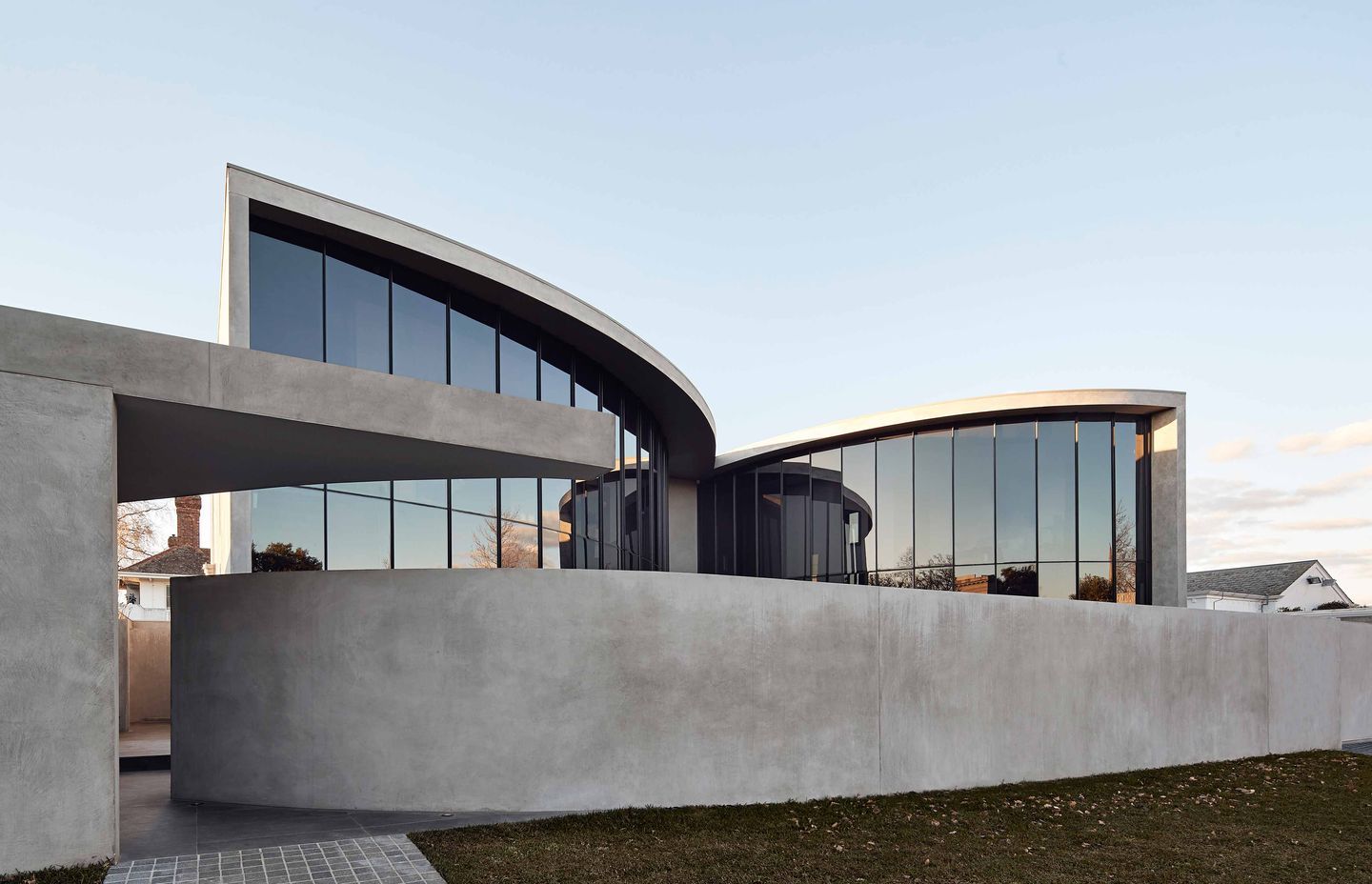The softness of concrete: spaces that shape the traditionally unyielding material
Written by
22 August 2022
•
4 min read

Although concrete was the material of choice in ancient Egypt and Rome – seen in the pyramids and monuments such as the Pantheon – its association with both the Industrial Era and Brutalist architecture saw it quite literally fall from grace, landing under our feet in the form of uninspiring grey pavement.
However, concrete has experienced a renaissance, extending far beyond industrial-style applications. Equal parts versatile and stylish, concrete lends itself to use on everything from kitchen benchtops and bathroom basins to tiled floors and feature walls. Far from cold or one-note, concrete can be used to make a style statement in rustic, minimalist and contemporary homes alike. And, it’s not just available in bland grey, with natural concrete showcasing blue-grey and green-grey tones as well as crisp white and coal. Dyed concrete is also a savvy option for lovers of colour, with playful shades such as pink and baby blue juxtaposing the utilitarian history of the material.
With the ability to be polished, cast or waxed, the options are endless when it comes to concrete, with some of our favourite interior designers and architects finding innovative ways to soften and humanise the material to great effect.
Read on for some unexpected and inspiring ways to use concrete.
Concrete canopy
This Hamilton Island property juxtaposes the uncontained beauty of nature with angular, defined forms. Sculpted from concrete, stone, brickwork, and glass, the definitively manmade structure takes on an airy tone, laden with private sheltered outdoor zones to promote quiet reflection while basking in the glory of the natural world. A rectilinear concrete structure frames the outdoor area, providing a feeling of comfort and safety while promoting dialogue with the world outside.
Refined restraint
The Calile Hotel displays a certain restrained austerity unique to its vibrant location. Taking a reductive approach to design, an understated material palette of concrete, brick, and stone is moulded in a surprisingly light and delicate way that welcomes visitors. On the exterior, concrete contributes to the almost Brutalist structure, with flashes of pink complementing the stark pale grey tones. Inside, it plays well with the white brick and lends the pool area a refined elegance, epitomising the low-key luxury offering for which Australia has become known.
Ties that bind
Eschewing the lightweight materials typical of many coastal locations, concrete features throughout this home, with white concrete masonry defining the exterior and concrete forming the frustum ceiling within. Reverse-step concrete pyramids anchor the home in place, providing a focal point in the dining space. The concrete benchtop in the kitchen mirrors the intricate design of the ceiling above, with a stepped apron design. The continuity ties the space together and promotes a greater sense of cohesion, with the thoughtful design softening the dense material.
Simple living
A neutral base palette of troweled concrete walls and timber flooring and ceilings is softened by minimal yet thoughtful furnishings, with plant life and soft textures working the humanise the sometimes harsh nature of concrete. A contemporary fireplace wall in the sitting area contributes to the streamlined effect.
Understated luxury
The industrial origins of concrete allow it to make a luxurious statement without being ostentatious. Providing the aesthetic of concrete without the heft, two tones of Alternative Surfaces' X-Bond raw concrete on the floor and walls make this expansive bathroom feel larger still, with the light shades opening up the space and subtly reflecting light, while timber accents add a touch of warmth.
Curvy concrete
Stepping away from rectilinear lines, this home makes a statement on the streetscape, with a fluid concrete façade forming a curved structure complemented by tinted glass. While a definitively modern structure, the gentle fluidity of the exterior harks back to the imposing curved structures created by the ancient Romans, modernised for today.
Want to start small? Explore the chic Shift Furniture range by Concrete Collective here.
